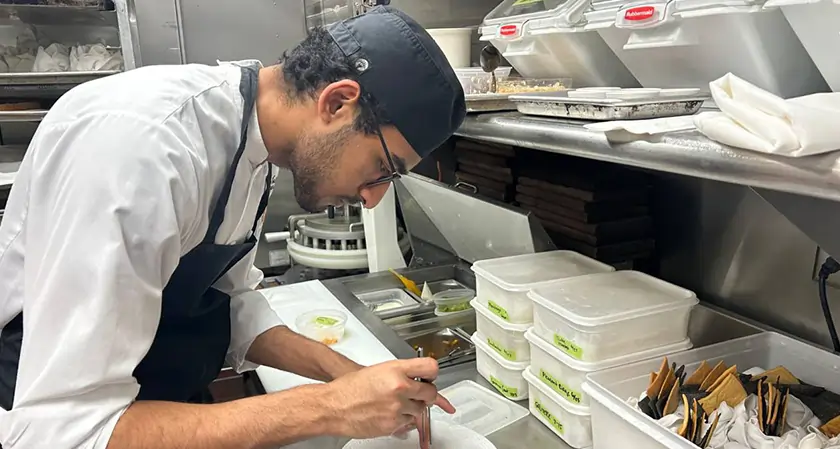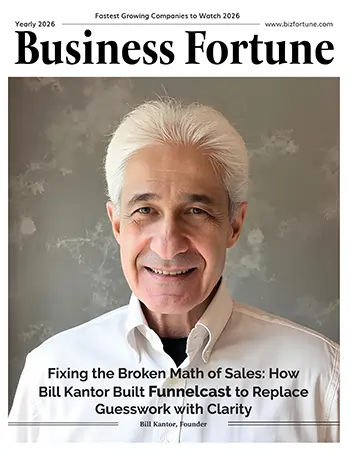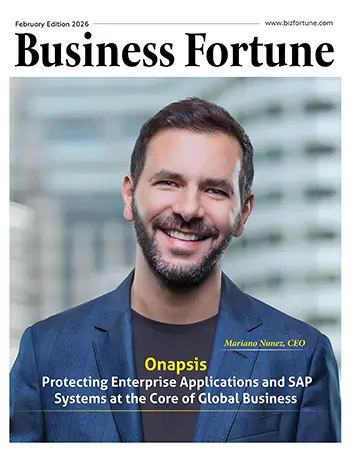By: Lesley Browne
The aroma of raw mango jam transports our expert pastry chef straight to his grandmother's kitchen in Bhopal as he works hard in the kitchen of a successful restaurant in Atlanta.
Why? The ingredients from his upbringing in central India, which he is now using to wow US diners, have found new life in globally inspired pastries that surprise both diners and critics at the lauded restaurant where he works.
At Michelin-starred Atlas and The Garden Room, Junior Sous Chef Chetanya Rai has reimagined desserts as canvases for cultural heritage and innovation. Reminiscing about his grandmother’s capacity to turn scraps into magic, he recalls: "My passion for pastry began early, inspired by my dear grandmother Bharti and my mother. They were creative in the kitchen, blending Indian spices with global recipes they found online."
Even here, thousands of miles away, Rai can envision in the sparkling kitchen of one of the world's best restaurants: saree carefully pulled up at the waist, stirring a wood-fired cauldron of bubbling preserves.
From Bhopal to the world's kitchens, the recollections that ground Rai's path mirror his cultural background and unshakeable determination.
Baking Heritage and Early Influences
Growing up in a town in Madhya Pradesh, Rai was taught how to make choices in the kitchen. His grandmother made a jaggery-sweetened vinegary raw mango jam using kalonji seeds.
Rai remembers: "She made a jam out of raw mango using kalonji seeds (Nigella sativa) and jaggery - the sweet and sour jam paired well with the savory flatbreads, more like a chutney."
He even attempted baking a vanilla cake using only a wooden spoon and a bowl – a kitchen disaster that ultimately taught him ingenuity.
Rai recalls: "That ability to think, you can pull out the best products by using different basic ingredients and basic tools," as he reflects on those early experiments.
Translating Indian culinary traditions into Michelin-starred innovation is the hallmark of Chef Rai's practice. One of his specialties is using jaggery, a traditional sweetener full of minerals. It boosts nutritional value and keeps the authentic taste, replacing refined sugar in cakes. Through dishes like his pani puri with caviar, which combine classic
Indian street food with sophisticated French plating, he elevates modest traditions. He adds citrus notes to his butter chicken, softening the spices. This way, he keeps the cultural integrity while appealing to diners who want a friendly fusion.
To satisfy dietary requirements, his technical inventiveness is evident in the creation of allergen-free breads made using Indian flatbread techniques, which do not need flour or yeast. His naan comes with mild butter and less garlic. It demonstrates a careful cultural balance and has the perfect texture to suit every taste bud. These developments not only elevate heritage in both gastronomy and accessibility but also have a global appeal, catering to diverse palates and preferences.
Innovating Desserts at Atlas
Rai has trained at top culinary schools like Manipal University and in five-star hotel kitchens, including Shangri-La Barr Al Jissah Resort & Spa before joining Atlas restaurant.
His intellectual background and international experiences have influenced Rai’s upbringing. He holds certifications including Level Two Pastry (City and Guilds of London) and Level One in Wines and Spirits, as well as a Bachelor of Culinary Arts degree from Manipal University.
Rai is currently studying for his Master of Science in Business Analytics from Trine University. Due to a quality education, he can combine creativity and efficiency in his daily work, which is highly beneficial in busy kitchens like Atlas.
At Atlas and its adjacent Garden Room lounge, Rai showcases his culinary innovation through globally inspired desserts.
His upscale pani puri appetizer with caviar, which he will also include on the new menu, is a brilliant innovation. Rai explains: "I prepare pani puri, an Indian street delicacy, with crispy shells filled with spicy water. I add caviar and combine Indian and American cuisine to create a sophisticated, unusual, yet familiar dish."
Aside from plated desserts,Rai's technical innovations also include overhauling fundamental baking processes.
He leads the charge in fermentation science and hydration optimization for Atlas's award-winning bread program, applying Michelin-trained standards to everyday staples with great care. His cardamom-scented Japanese milk buns, which combined fragrant Indian cardamom with soft Asian textures, were a huge hit and inspired colleagues with their skillful fusion of cultures.
Rai shows his commitment to healthy baking with his heirloom tomato sourdough rolls. He has been fermenting heritage grains for a long time to make them. Rai's creativity shines through in the unique items he creates, such as purple ube baguettes and croissants, that utilize sourdough starter instead of yeast. These show how traditional and modified methods keep complexity. They also boost seasonality, nutrient density, and the tasty aspects of fermentation.
The methodical use of whole grains, prolonged fermentation, and a seasonal focus meet contemporary wellness trends while introducing European precision to global pantry influences, enabling chefs to meet dietary requirements without compromising flavour.
Fusion cuisine involves reimagining classic meals, such as Japanese milk buns: "I deliver a unique flavor character by merging delicate Japanese buns and the soothing, spicy aroma of cardamom, an Indian spice." This preserves Indian character in a modern way while skillfully bridging two culinary traditions.
Rai is a vital member of his team due to his specific expertise in fermenting and baking methods: "As the resident pastry expert for oven operations, colleagues consistently rely on my guidance.”
While highlighting his fermentation knowledge, which is equally important, he says: "Whether I'm making delicate soufflés and artisan breads, proving dough, or drying fruits, they rely on me to operate our professional-grade oven with skill.
"Rooted in Indian bread-making traditions, it ensures consistent quality across our bread program, from crostinis to shortcrust specialties."
Rai's technical innovation seamlessly blends fusion aesthetics with sustainable and health-conscious ideas. By doing so, he offers a deep understanding of culture.
His careful use of heirloom grains, house-fermented starters, and local ingredients, such as dehydrated ramp powder in pretzels, revolutionizes the way we perceive pastry arts. It demonstrates that indulgence and health can coexist.
Rooted in a traditional yet innovative approach, Rai sets new standards for pastry nutrition in the fine dining sector. Rai's sourdough tomato rolls at Atlas have become a kitchen staple, proving that traditional methods can produce rich flavours and increased nutrient density.
Such creations not only inspire but also motivate peers to reconsider sourcing and raise industry standards.
Global Kitchens and Honors
Before coming to work in Atlanta, Rai was selected from hundreds of applicants for an internship at the Shangri-La Barr Al Jissah Resort & Spa in Muscat, Oman. The resort features 21 restaurants and 650 rooms.
Rai prepared desserts for affluent visitors, including Omani and Italian royalty. He recalls one of them: "When I was at the Shangri-La, the kitchen staff selected me from 10 chefs to prepare a 5-course meal at the Italian ambassador's residence; I managed a difficult situation at short notice and strict diet restrictions."
The dinner was flawless, and he received two Outstanding Performance Awards for his exceptional performance under pressure.
Rai has baked desserts for Fortune 500 CEOs, as well as for President Trump, but he never boasts about his celebrity clients. Such experiences demonstrate to him how much a humble spoonful of tradition can matter, even at the peak.
Mentorship and Teamwork
Rai believes that sharing knowledge is as important as cooking itself. To date, Rai says he has had over 150 recipes approved by executive chefs throughout his career, and has guided his team in refining over a hundred others, often adding an Indian-inspired touch: "Innovation must ripple through the whole kitchen, not just my station."
Rai's influence extends far beyond his team, serving as a beacon of inspiration for the culinary industry.
His unique blend of traditional techniques and global flavors not only mirrors evolving dining trends but also inspires his colleagues to explore cross-cultural blends. And the meticulous attention to detail has earned him a reputation in luxury hotels and Michelin-starred restaurants.
Rai's journey, starting from a small home bakery, has equipped him with the rare ability to bridge heritage traditions and professional settings, combining artisanal skills with scalable production.
As Atlas's junior sous chef, Rai has played a pivotal role in fostering a culture of creativity and innovation in the kitchen. His focus on fundamentals, such as fermentation and bread science, has empowered his colleagues to create signature dishes, ranging from flatbreads with mustard oil to allergen-free breads using traditional Indian methods.
By setting high standards and promoting a more inventive and cooperative culture in pastry arts, Rai's emphasis on mentoring and knowledge sharing can shape the future of the field.
Some of the queries he poses to the pastry crew during his frequent brainstorming meetings include: "What if we fermented this? Or how could we give that dish a regional twist?" Rai would rather listen and offer guidance, helping others discover their own creative potential.
His commitment to teaching extends beyond professional kitchens. He rooted this commitment to mentorship in his time running workshops in India, where he helped aspiring home bakers, especially women, learn professional techniques with minimal resources.
Colleagues describe Rai as a patient, off-stage mentor. Chef Nandira Raj says: "He designed the menu to suit the audience, trained the team, and simplified the preparation methods without compromising quality."
She adds: "Rai’s discipline and curiosity are evident, and he's constantly experimenting, learning new techniques, and improving his craft. His participation improved the caliber of our offerings."
Rai's leadership, with its inclusive mindset, has a profound impact on team dynamics in high-end kitchens. By incorporating open communication and team brainstorming into the recipe development process, he transforms conventional top-down settings into cooperative idea incubators. Rai's approach helps trainee chefs suggest local options and experiment with new methods, such as fermentation. It also creates a safe space where they can take risks and be creative.
The free exchange has shifted Atlas's pastry operations toward shared innovation, a philosophy that former colleague Chef Arsh characterizes as creating psychological safety.
Chef Arsh reveals: "Chetanya doesn’t just teach how to do something; he explains the science behind it. He has a rare gift for breaking down complex techniques into something everyone in the kitchen can understand."
And restaurant veteran Nicholas Wazz highlights Rai’s confidence: "The degree of trust and expertise that he has for the food he makes is inspirational. His capacity to adapt is one of his best qualities, and being able to take on a challenge is something that excites him."
Future Goals
In the future, Rai hopes to alter the perception of desserts. Besides being a member of the Indian Culinary Forum and the Craft Guild of Chefs, he is looking to join international fermentation and culinary associations to exchange expertise internationally.
Rai says: "I try to get people to change their view of pastry because I want to demonstrate to them that they can be healthy and not expensive. And I employ methods like the use of the curd and baking soda to make light, vegetarian cakes that health-conscious visitors order."
Rai's distinct method, with its deep roots in cultural heritage, spurs creativity, motivates teams, and changes how people perceive ingredients.
His signature items, such as his cardamom-scented Japanese milk buns, are a result of his innovative thinking. These buns mix traditional Indian spices with laminating techniques. They show his talent for honouring tradition and encouraging creative thinking.
Rai pushes peers, with exacting technique serving as the foundation rather than the ceiling for significant advancements inspired by international influences.
For Rai, nutrition and sustainability are absolute goals in all aspects of his daily work, whether employing local fruits for consumption or avoiding wastage. This ethos rejects ingredients that harm the environment, such as air-freighted fruits, reflecting Rai's call in "Baking with Purpose" thought piece for seasonal creativity and mindful sourcing. Rai elaborates in the news story: "Every croissant and puff pastry we make carries the terroir of the region. It's about turning everyday pastries into stories of mindful craftsmanship."
He also brings his roots to the plate with all the desserts he makes, infusing the flavors of Bhopal into haute cuisine.
Chef Rai is now bringing to life The Rai, a sustainability-focused boutique bakery and dessert studio in Atlanta, Georgia. This bakery isn't just any bakery. It shows his culinary vision. It blends Indian heritage, traditional French patisserie, and modern innovation. Plus, it has a strong focus on sustainability. With its unique model that combines upscale shopping, immersive dining, and event-based culinary service, The Rai is set to become a flagship destination.
At the heart of The Rai's experience will be a three-course dessert tasting menu that changes with the seasons and is available by reservation only. The bakery sits at the crossroads of luxury and ethical sourcing. It offers high-quality food that chefs present
with care. And they use local ingredients to craft unique culinary stories. Each dish is a chapter in a narrative of flavor, texture, and history, inviting you to be part of the story.
Rai's technical foundation drives innovations such as naturally leavened ube baguettes and fermented garlic sourdoughs, as demonstrated through extensive research and development in fermentation science and hydration optimization at Atlas. His careful blend of craft and science is evident in these creations, which meet the demand for baked goods packed with nutrients. His pastry skills create signature offerings that impress with their visual appeal and culinary complexity, achieved through the fusion of traditional French techniques and modern flavors.
Chef Rai reflects his dedication to artisanal craftsmanship and ingredient integrity in the main menu. Baked goods will include sourdough loaves made with natural leavening and laminated viennoiserie, which features traditional butter croissants and almond croissants. The patisserie menu will highlight his skills in fine dining. It includes plated desserts like the Crème Brûlée Danish and Lemon Meringue Tart.
The curated selection is a testament to Chef Rai's dedication to elegance and indulgence. Handcrafted goods, such as Pistachio Rose Shortbread and Salted Caramel Brownies, along with celebration cakes and cupcakes like the Vanilla Bean Cake and Dark Chocolate Ganache Cake, offer a luxurious twist on traditional favorites.
Rai says: "The Rai is my life's work. The goal is to create an environment where extraordinary taste, cultural storytelling, and sustainability come together. We offer more than just baking. We create a meaningful and refined experience rooted in tradition and accountability. This approach brings fine dining pastry to life in a fresh way."
He continuously innovates in modern pastry with his methodical approach, creative fusion, and passion for cooking, which he learned from his grandmother, Bharti. Rai shows how tradition can influence the direction of fine dining as patrons savor his Indian-inspired dishes.



































